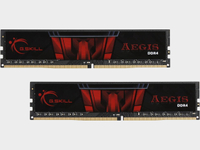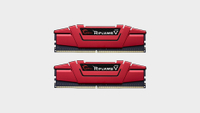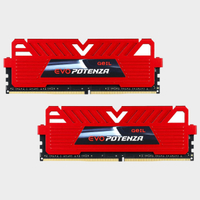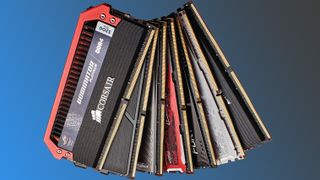
Back in 2016, you could get 16GB of DDR4 RAM for around $70, but the increasing demand from mobile phones using DDR4 chips, followed by some setbacks in production drove prices up throughout 2017. The cost of that same 16GB kit peaked around $200 in early 2018.
Thankfully there was relief in sight. In late 2018, DRAMeXchange said that falling demand for DRAM at various levels—a combination of sluggish smartphone sales and lower PC and laptop production due to the shortage of Intel CPUs—would lead to lower DRAM prices in 2019 as well. Sure enough, we're finally starting to see memory available at much closer to those pre-shortage prices.
Take a look at this price history graph for 16GB of G.Skill Ripjaws V DDR4-2666:
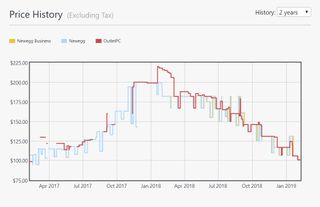
In other words, it's finally a good time to pick up a new set of sticks for your next build. Here's a few great options we've found lately:
G.SKILL Aegis 16GB (2 x 8GB) DDR4-3000 | $84.99
This set of DDR4-3000 sticks is one of the cheapest we've seen since prices have dropped. You could save $5 by dropping to DDR4-2133, but why bother?
G.SKILL Ripjaws V Series 16GB (2 x 8GB) DDR4-3000 | $99.99
This Ripjaws V kit has slightly better timings than the above for $15 more. It's one of our picks for the best RAM for gaming.
GeIL Potenza 8GB (2 x 4GB) DDR4-2400 | $45.99
If you're wanting to keep pricing in check and going for a budget build, a pair of 4GB sticks will help. This GeIL kit has modest timings but should work fine.
Some online stores give us a small cut if you buy something through one of our links. Read our affiliate policy for more info.
The biggest gaming news, reviews and hardware deals
Keep up to date with the most important stories and the best deals, as picked by the PC Gamer team.
As the former head of PC Gamer's hardware coverage, Bo was in charge of helping readers better understand and use PC hardware. He also headed up the buying guides, picking the best peripherals and components to spend your hard-earned money on. He can usually be found playing Overwatch, Apex Legends, or more likely, with his cats. He is now IGN's resident tech editor and PC hardware expert.
Most Popular






